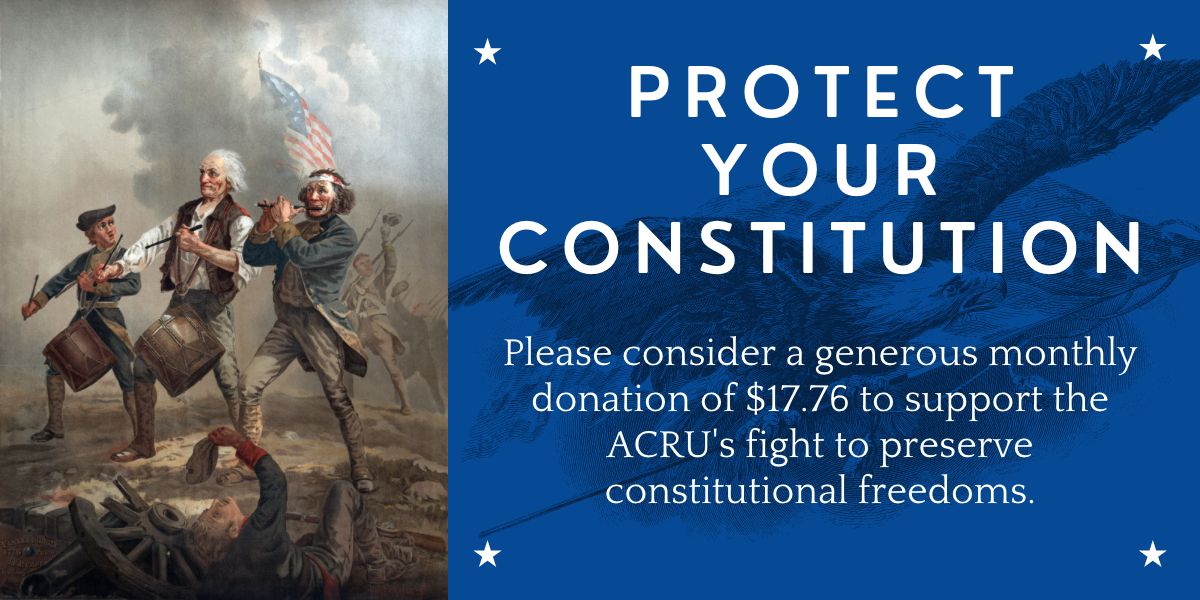Ken Klukowski: Individual Mandate is Unconstitutional
ACRU Staff
October 20, 2009
This column originally appeared on Politico.com on October 20, 2009.
The Senate Finance Committee-passed health care bill includes an “individual mandate” that Americans must buy an insurance policy or pay a fine, an approach that tracks President Barack Obama’s health care proposals. But if enacted into law, this mandate would be glaringly unconstitutional.
That’s because those refusing to get insurance would be subject to a fine, and refusing to pay would be a misdemeanor crime, punishable by another fine or even jail time.
States wield what is called police power: the authority to make laws for the health, safety and morality of their people. The federal government, on the other hand, has limited jurisdiction. If the Constitution does not grant a specific power to the federal government, then the 10th Amendment reserves it to the states or the people.
Plenty of constitutional provisions grant powers to the federal government. For example, most that involve conditions on persons receiving federal money come from the Tax and Spending Clause. Many of the rest come from the Commerce Clause, which empowers Congress to regulate interstate commerce.
But, as other lawyers have correctly noted, there is no constitutional basis for the individual mandate. People who decline coverage are not receiving federal money, so that mandate can’t fall under the spending part of the Tax and Spending Clause.
It also cannot be a tax. The federal government can levy only certain kinds of taxes. Article I of the Constitution authorizes excise and capitation taxes, and the 16th Amendment created the income tax.
It can’t be an excise tax because that’s a surcharge on a purchase, and here people are not buying anything. It can’t be a capitation (or “direct”) tax because that is a tax on every person in a state and must be equal for every person in the state; this would be a levy that some people would pay and others would not. And it can’t be an income tax because that must be based on personal income, not purchase decisions.
All that’s left is the Commerce Clause. And the people who declined to purchase government-mandated insurance would not be engaging in commercial activity, so there’s no interstate commerce. That, in fact, is the government’s problem with them: Those people refuse to take the money or play the game.
It’s true that the Commerce Clause (like some other constitutional provisions) has been construed over the years (since 1942) into something that would give the Founding Fathers fits. It’s been interpreted into a ridiculously broad catchall for federal intrusions into people’s lives.
But it’s not unlimited. The Commerce Clause still constrains federal action, even though in the past seven decades only two laws have been struck down on Commerce Clause grounds, in 1995 and 2000. We don’t see the courts use this provision often because even on its worst day, Congress usually doesn’t go on an insane, socialist spending spree. (Well, until lately.)
Then Obama came along, with his cadre of czars and his congressional comrades like Speaker Nancy Pelosi, whose far-left views represent only a small fraction of the American people.
Now they’re finally forcing things too far. If Obama wants a health care plan that compels every American to carry insurance, he will have to persuade the nation to adopt a constitutional amendment creating a right to health care. You might have better odds of getting struck by lightning.
For dozens of policy reasons, those who believe in free-market economics or understand why America has the greatest health care in the world are doing everything possible to stop Obamacare.
But if they fail in the legislative process, they must look to the U.S. Supreme Court to drop the hammer of the Constitution on Obamacare and strike its key mandate provision from the books.
This had better happen soon, though, before Obama has a chance to remake the Supreme Court in his image.
And perhaps that’s been his plan all along.
JOIN ACRU's PATRIOT CLUB





